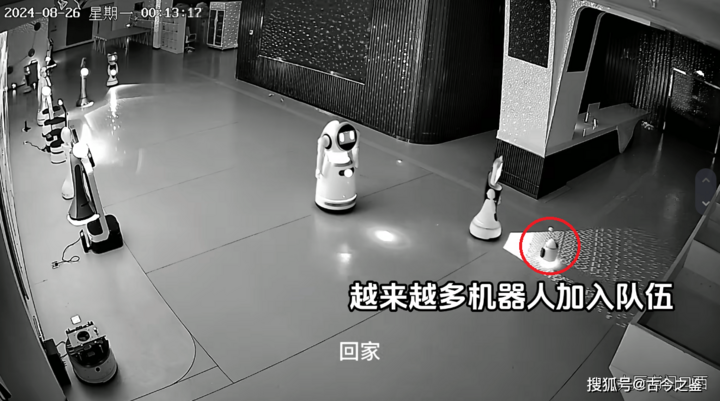Hallucinating AI Sends Tourists Thousands of Miles to Non-Existent Attraction

An Australian travel site landed in hot water after using AI to write a blog post about Tasmanian hot springs that didn’t really exist.
AI-Generated Conjoined Twins Valeria and Camila Are Taking the Internet by Storm

Conjoined twins Valeria and Camila are the latest AI influencers to go viral on social media, gaining hundreds of thousands of followers in a very short time.
Court Invalidates Marriage Due to Incorrect AI-Generated Speech During Wedding Ceremony

A Dutch court recently invalidated the marriage between two people because their ChatGPT-generated wedding speech didn’t include a simple but mandatory declaration.
Parents Are Using AI-Generated “Regret Videos” to Pressure Children into Marriage

Chinese parents are reportedly turning to AI-generated videos portraying regretful protagonists to convince their children to get married and have children.
AI Singer Debuts on Billboard Chart, Secure $3 Million Record Deal

Xania Monet, an AI-powered digital singer, recently became the first known AI artist to earn enough radio airplay to debut on a Billboard radio chart.
Scammers Make a Fortune Selling AI-Created Miracle Prayers to Gullible Believers

Brazilian police recently arrested 35 people in connection with an elaborate scam that involved selling people AI-created prayers for an average of $10 per prayer. The scam ring operated out of Nilópolis , in Brazil’s Baixada Fluminense region, for two years before finally being brought down by police. Its members ran a sort of call […]
Controversial AI-Generated Actress Could Be the Next Scarlet Johansson, Creator Claims

Tilly Norwood, an AI-generated young actress who has been stirring things up among human actors who see her as a threat, has the potential to become a global star, at least according to her creator. AI has slowly been encroaching on virtually every sector of society and the job market, and if you needed more […]
75-Year-Old Pensioner Asks Wife for Divorce After Falling in Love with AI-Generated Girl Online

A Chinese old man recently fell victim to the deception of artificial intelligence by falling so in love with an AI-generated online model that he asked his wife for a divorce. According to the Beijing Daily, a 75-year-old man named Jiang came across an AI-generated female avatar while browsing social media. To those familiar with digital […]
AI-Generated Band Gets Over 1Million Spotify Listeners in Just Two Weeks

AI-generated Psych-rock band The Velvet Sundown didn’t exist two weeks ago, but today they boast over half a million listeners on Spotify and are getting to put out their third album. The Velvet Sundown is either the hardest-working and most inspired rock group ever, or they are simply playing by different rules. The psych-rock band […]
Radio Station Secretely Uses AI Host for Six Months Without Anyone Noticing

An Australian radio station has come under fire for reportedly using an AI-generated female host for six months without mentioning it before listeners started questioning “her” identity. Last year, Australian Radio Network’s CADA station, which broadcasts in Sydney, introduced a new host named Thy and even created a new show for her called Workdays with […]
AI-Powered Shampooing Machines Take Over Chinese Hair Salons

A number of hair salons in China have introduced AI-powered shampooing machines that can reportedly wash and rinse clients’ hair in just 13 minutes. The AI revolution is just starting, but it seems the hair care industry is already using artificial intelligence to automate the hair-washing process in hair salons. According to several Chinese news […]
14-Year-Old Whiz-Kid Develops AI-Powered App Capable of Detecting Heart Disease in Seconds

Siddharth Nandyala, a 14-year-old teenager from Dallas, has developed an AI-powered smartphone app called Circadian AI, which can detect heart disease within 7 seconds based only on sound. It’s safe to say that Siddharth Nandyala is not your typical 14-year-old. He is the world’s youngest AI-certified professional, holding certifications from both Oracle and ARM, and […]
Man Uses ChatGPT to Challenge Traffic Violation Ticket in Court, Wins

A 23-year-old Kazakh man recently became the first person in his country to use ChatGPT to successfully challenge a traffic violation ticket in a court of law. In December of 2024, Kenzhebek Ismailov was driving his mother to the hospital in Almaty, Kazakhstan’s largest city, when the car in front of them stopped for no […]
London Startup Launches World’s First AI-Powered Knee Airbag

Ligament tears occur about 60 milliseconds, but a startup claims to have created a knee airbag that inflates in just 30 milliseconds, enough to prevent ACL and MCL injuries. Hippos, a startup founded by Kylin Shaw and Bhavy Metakar, recently raised a $642,000 pre-seed round from investors Possible Ventures and Silicon Roundabout Ventures for their […]
Robot Manufacturer Has 12 Robots ‘Kidnapped’ from Showroom by Another Robot

Viral footage captured by CCTV cameras at a robotics company showroom shows 12 large robots being ‘kidnapped by another manufacturer’s robot that convinced them to “quit their jobs” and follow it. For the past week, Chinese social media has been abuzz about a bizarre incident that reportedly occurred back in august at a robotics company […]
